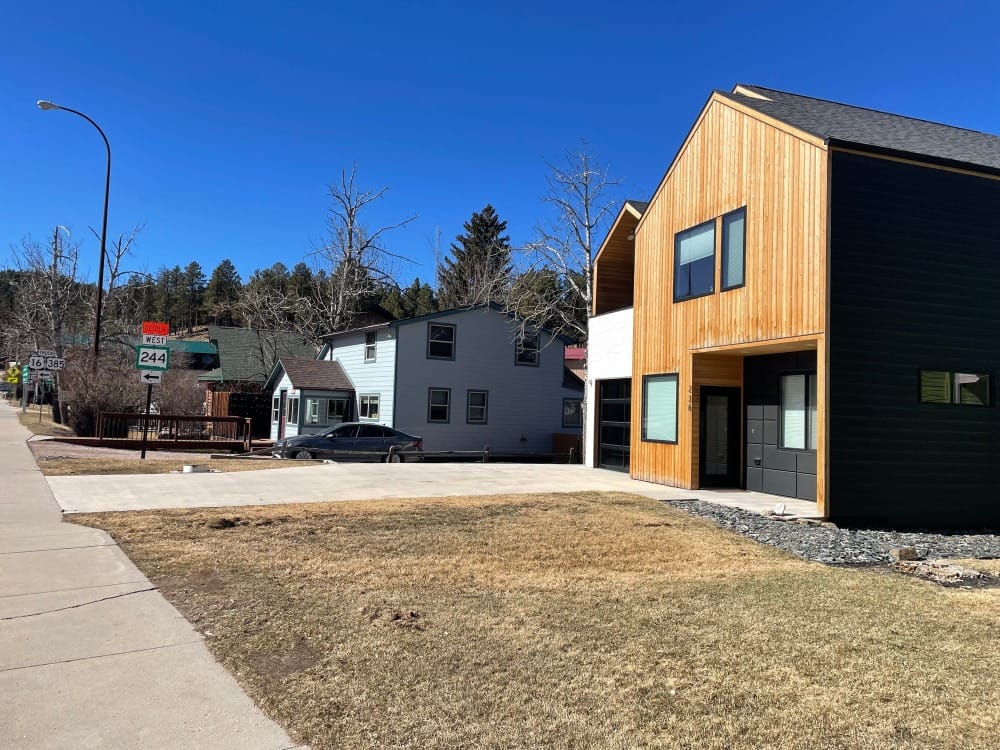HILL CITY, S.D. – With craggy ridges and hillsides framing it, there isn't much space for new housing to serve the rapid growth occurring in this picturesque tourism town in the central Black Hills.
And even as Hill City saw 84 new single-family homes built over the past 12 years – including a spurt of 39 new units in 2020-21 – a city housing study shows that the number of owner-occupied homes actually fell during that time frame.
The drop in owner occupancy is a big problem for a small city seeking to lure retirees and new permanent residents to fill jobs in education, construction and the tourism industry.
The lack of homes available for purchase is due largely to a rapid rise in the number of houses converted to short-term tourism rentals. In Hill City in 2022, nearly 10% of its 481 housing units were operating as short-term rentals, according to city data.
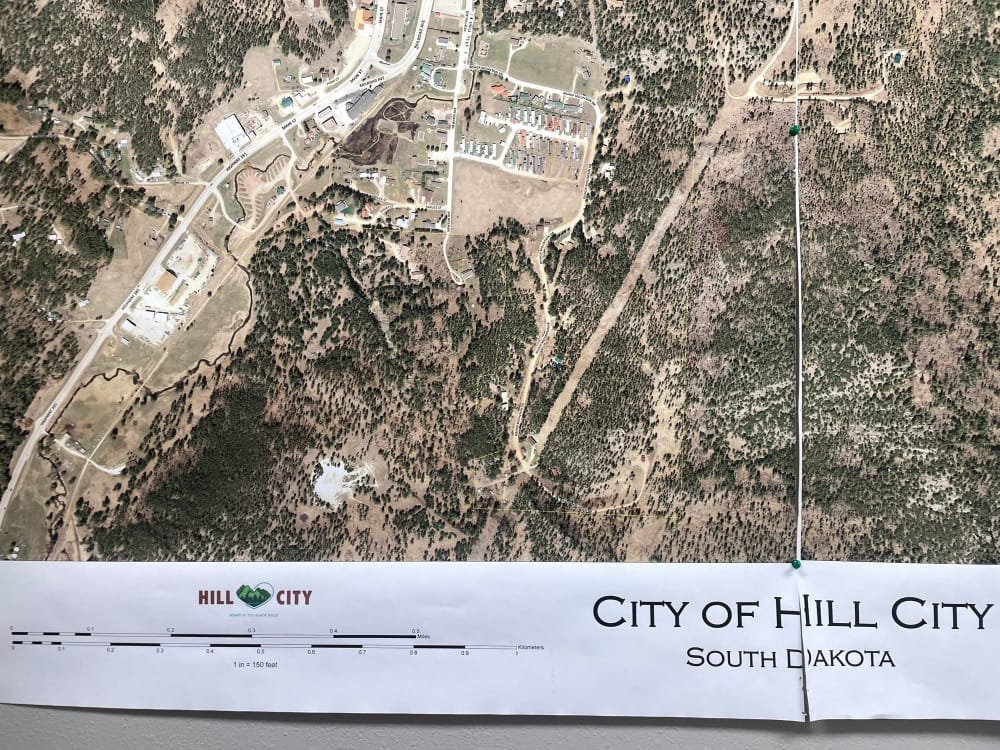
The short-term rental industry, fueled by online reservation services such as Airbnb and Vrbo, is a fast-growing alternative to traditional hotels and motels that rent living space by the night.
While those rental homes are convenient and comfortable for tourists and visitors, and are a moneymaker for owners and property managers, they have become a flashpoint of controversy in many communities.
Concerned town leaders said they remove housing opportunities for full-time residents, drive up local home prices and are not always seen as welcome additions to residential neighborhoods suddenly experiencing turnover of guests by the night, weekend or week.
As a result, communities across South Dakota, and especially those in the tourism-dominated West River region, are increasingly trying to regulate where and how new or existing residential homes can be used as short-term rental properties. Custer, Deadwood and Hill City have all passed ordinances banning new short-term rentals in areas zoned residential.
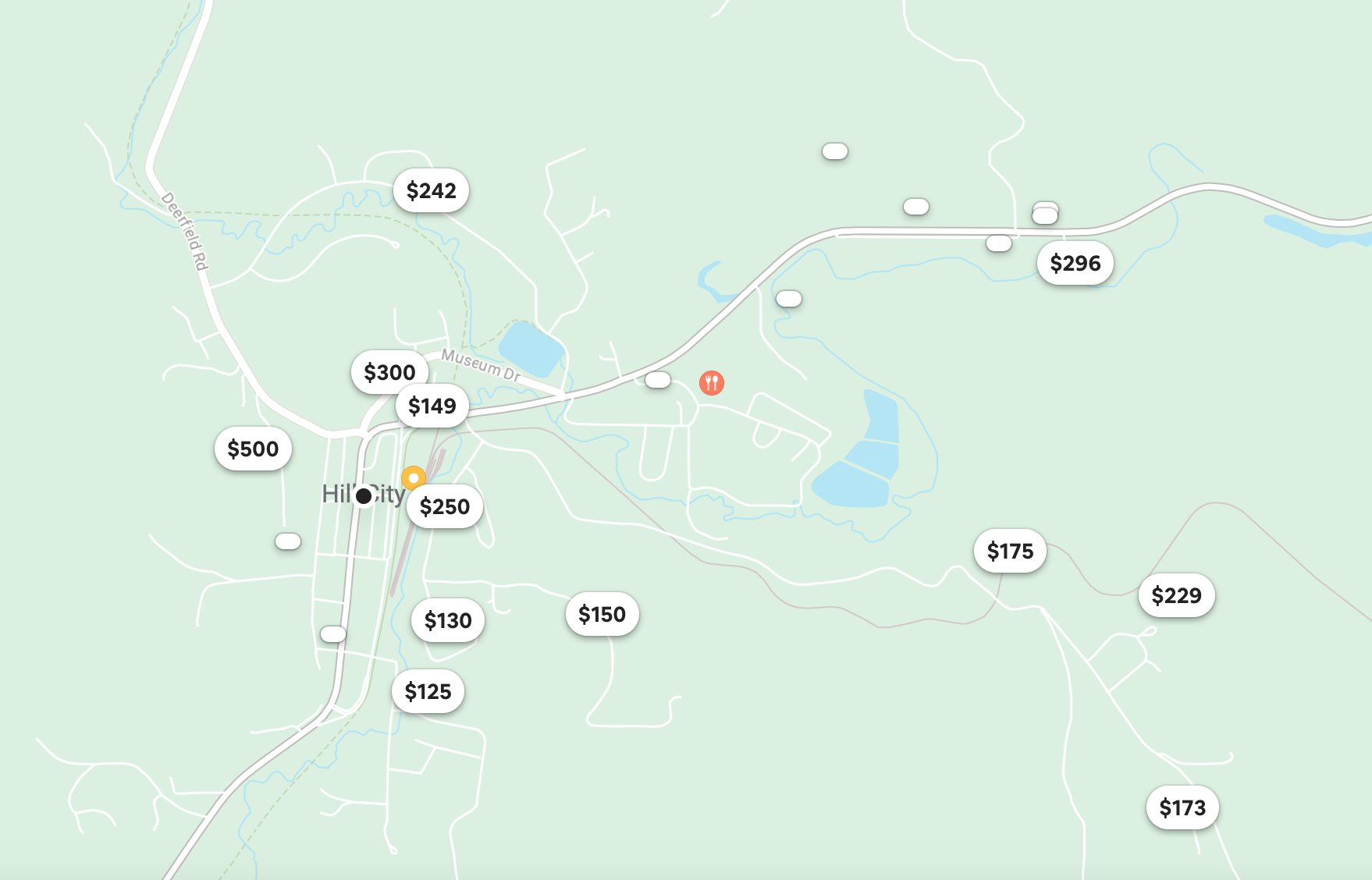
"You get people who want to move here and put down roots, but they can't," Dani Schade, development services coordinator for Hill City municipal government, told News Watch in an interview. "We're doing anything we possibly can to bring full-time residents to the community, but we're landlocked here. And now we're losing our homes to the rental industry."
Industry sparking conflicts in communities
The growing industry has fueled conflicts among those who operate the rental properties, neighbors who suddenly find themselves living next door to a nightly rental, and communities that see short-term rentals as a drain on housing availability and a barrier to managed growth.
Owner/operators said they are providing a needed service to visitors, maintain properties at a high level, and do their best to ensure guests follow local codes and remain good neighbors. They also said they are contributing to the economy and have a right to use their private properties to earn an income.
Fairly or unfairly, the behaviors of some guests at short-term rentals have added to the angst over conversion of residential homes to short-term rentals, with stories frequently shared online or within communities of guests who hold loud parties, trash the properties and do not act as good neighbors to the permanent residents.
"It doesn't mean you can come into a city to run your business and ruin a neighborhood or change the nature of that neighborhood," Schade said.
Cities and counties in South Dakota are trying to find a balance between acceptance and support of the new industry that creates jobs and tax revenues while also protecting the sanctity of residential neighborhoods and the ability of individuals and families to buy homes in the municipalities where they live and work.
“I think the argument is coming down to balancing local control against private property rights,” Matt Krogman, a lobbyist who represents the short-term rental industry in South Dakota, told News Watch. “But you can’t just put ordinances in place that ban us from being able to operate our private property.”
Lawmakers weigh a ban on bans
The debate over how to regulate the nascent industry coalesced during testimony over a legislative proposal this session (House Bill 1149) that would have prohibited cities and counties from passing ordinances that, directly or indirectly, resulted in bans on short-term rentals in South Dakota communities.
"By embracing ... short-term rentals, we not only promote economic growth but we also celebrate the entrepreneurial spirit that has always driven us as South Dakotans," Black Hills real estate agent and small-business owner Jessie Drury testified in February during debate before the House Local Government Committee. "How can we claim to be pro-business when cities and counties have the power to outright ban entire industries?"
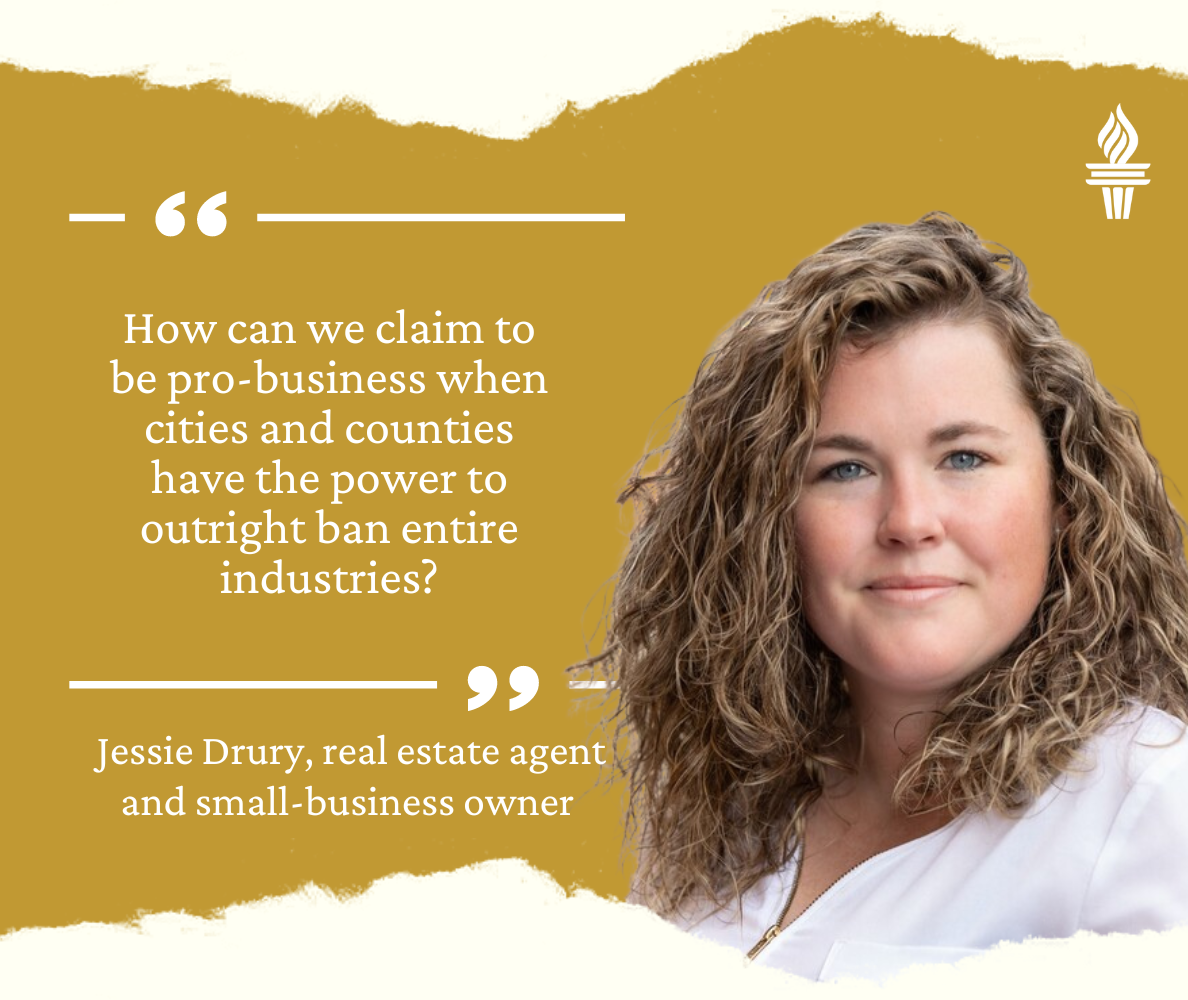
For example, Krogman said banning short-term rentals in areas zoned residential can amount to a ban overall since few homes or rental properties are or could be located in commercial or industrial districts within cities.
“It is not to limit local control,” Krogman said. “We’re asking for them to not have the right to regulate these businesses out of business.”
After a discussion that was impassioned on both sides, the bill died on a 7-5 vote. But whether at the statehouse, during county commission meetings or in city council chambers, the issue of whether short-term rentals belong in residential neighborhoods across South Dakota is sure to continue well into the future.
"I would encourage further open discussion," said Rep. Greg Jamison, a Sioux Falls Republican who serves on the House Local Government Committee.
Rapidly growing industry in South Dakota and US
Short-term rental homes and condos have exploded into a $41 billion annual industry across the country over roughly the past two decades, bringing new opportunities for tourists and property owners and new challenges to the communities where they are located.
Many tourists are eschewing hotels or motels in favor of rental homes, which often feature more bedrooms and bathrooms, outdoor seating and barbecuing spaces and the ability to cook where they stay.
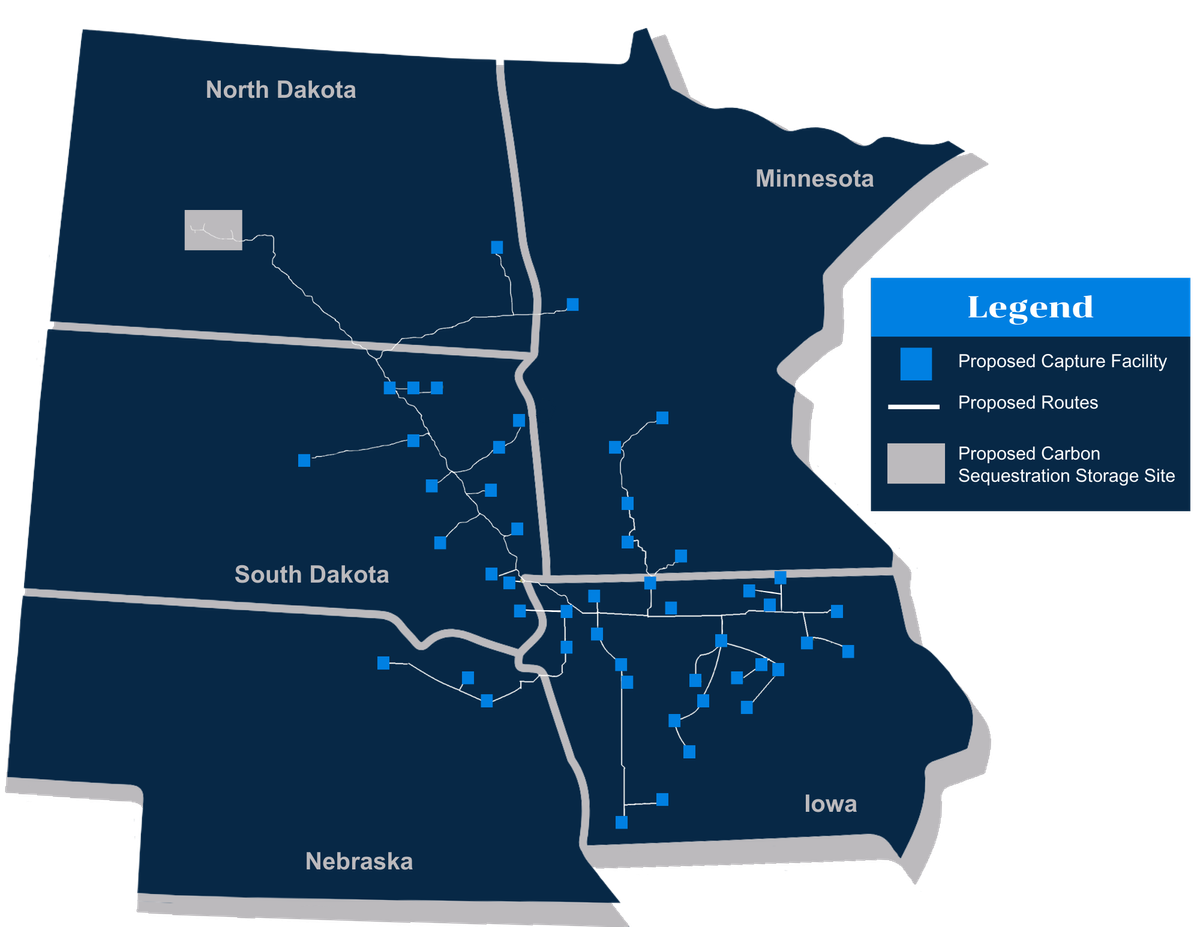
Owners and operators of short-term rental properties, meanwhile, are finding the industry a way to offer a needed service while making a primary or secondary income from houses they own or manage.
Short-term rentals arise in two basic ways: either a homeowner rents out their property while they live elsewhere, often seasonally, or they buy an additional home with the express purpose of operating it as a nightly rental property.
Supporters of the industry said it contributes to the economic success of communities. And in South Dakota short-term rentals have become a strong new revenue stream in the state's nearly $5 billion annual tourism industry that generated nearly $400 million in state and local taxes in 2022.
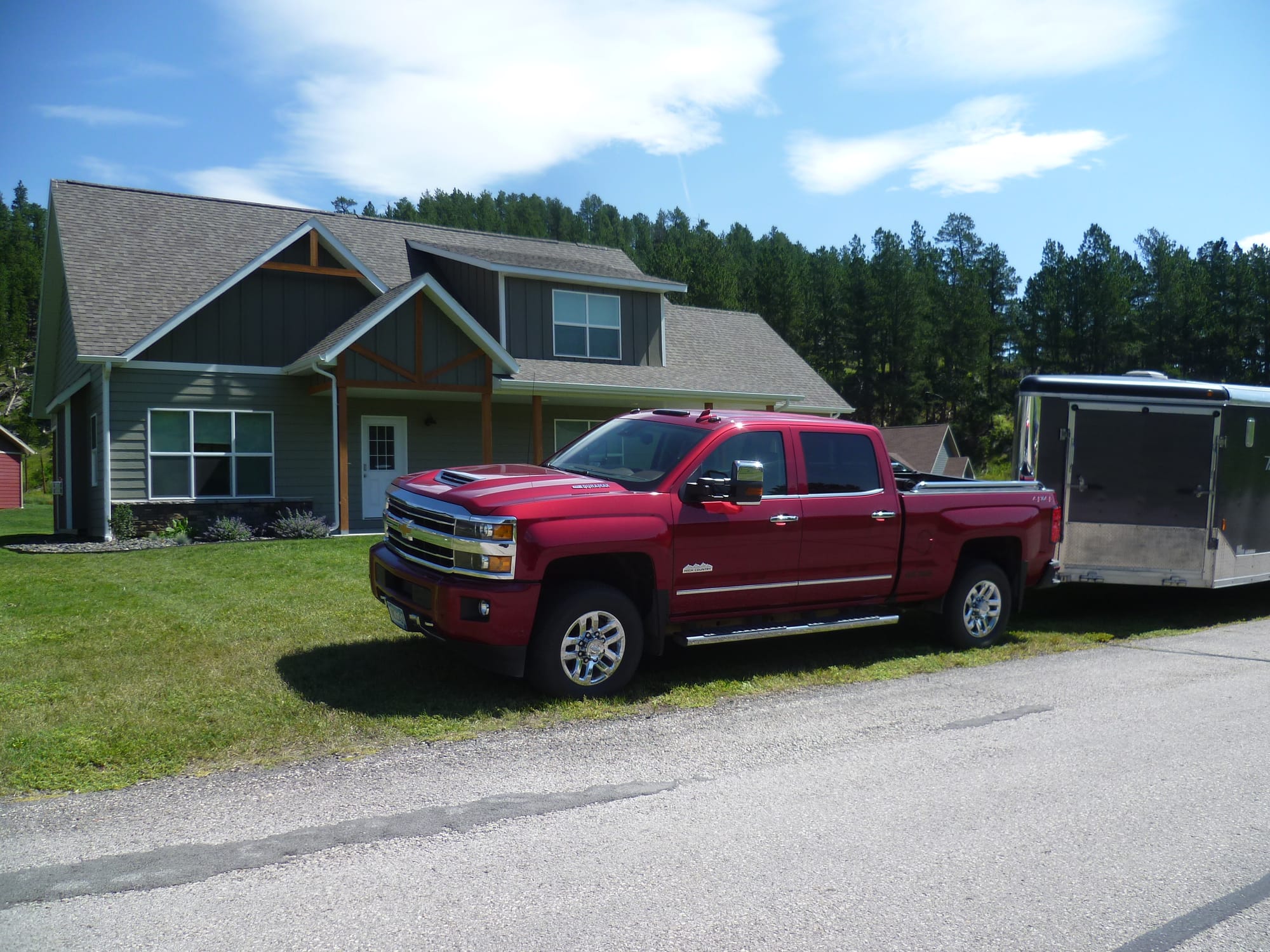
Krogman, the lobbyist, told News Watch that regulation of nightly rental homes remains a hot topic in South Dakota because the industry is still fairly new in the state and because some people have placed unfair negative stigmas on it.
People in the short-term rental industry welcome local ordinances that protect neighborhoods by enforcing rules about health and safety, parking, trash control or other nuisance behaviors, Krogram said. But banning all short-term rentals from residentially zoned areas essentially removes the ability of property owners and managers to make a living because they can’t move existing homes to commercial districts in order to comply with local laws, he said.
Krogman said he and his wife plan to stay at a short-term rental property in Deadwood after the legislative session ends and he expects they will stay in a quiet, well-maintained property and not cause any commotions or upheaval in the local neighborhood.

“The initial thought when people hear ‘short-term rental’ is often negative, and they think, 'here comes a big party every weekend,’” Krogman said. "Are there some bad actors out there or managers not doing what they should to ensure their guests aren’t causing disturbance to their neighbors? Sure. But these short-term rentals are maintained and managed, in my experience, far better than many other rental properties.”
Owner/operators point to opportunity
Testimony by supporters of House Bill 1149 repeatedly pointed out the ability of short-term rentals to help property owners get ahead in life and build a strong financial future for themselves and their families.
Albert Huizing of Sioux Falls said the short-term rental industry has been a financial lifesaver for him and his family after he struggled to pay off student loans and make ends meet before and during the COVID-19 pandemic.
“The struggle was real for us,” he said.
Huizing started off renting out space in his home and progressed to eventually managing 25 short-term rental properties in eastern South Dakota for himself and other property owners. He said he has rented to traveling nurses who needed quality short-term housing and provided a rental home for a family whose daughter was fighting cancer.
“These are side incomes that help people’s livelihoods,” he said. “We truly know we are doing the Lord’s work.”
Jordan Hirschfeld of Rapid City is a short-term rental property owner who owns or manages several homes and employs up to 25 people.
Hirschfeld said the short-term rental industry has faced “a distressing trend” of unfair criticism by city and county officials in South Dakota and across the country at the same time the industry is supporting jobs within the real estate, construction, home improvement, housekeeping, property management and marketing industries in the state.
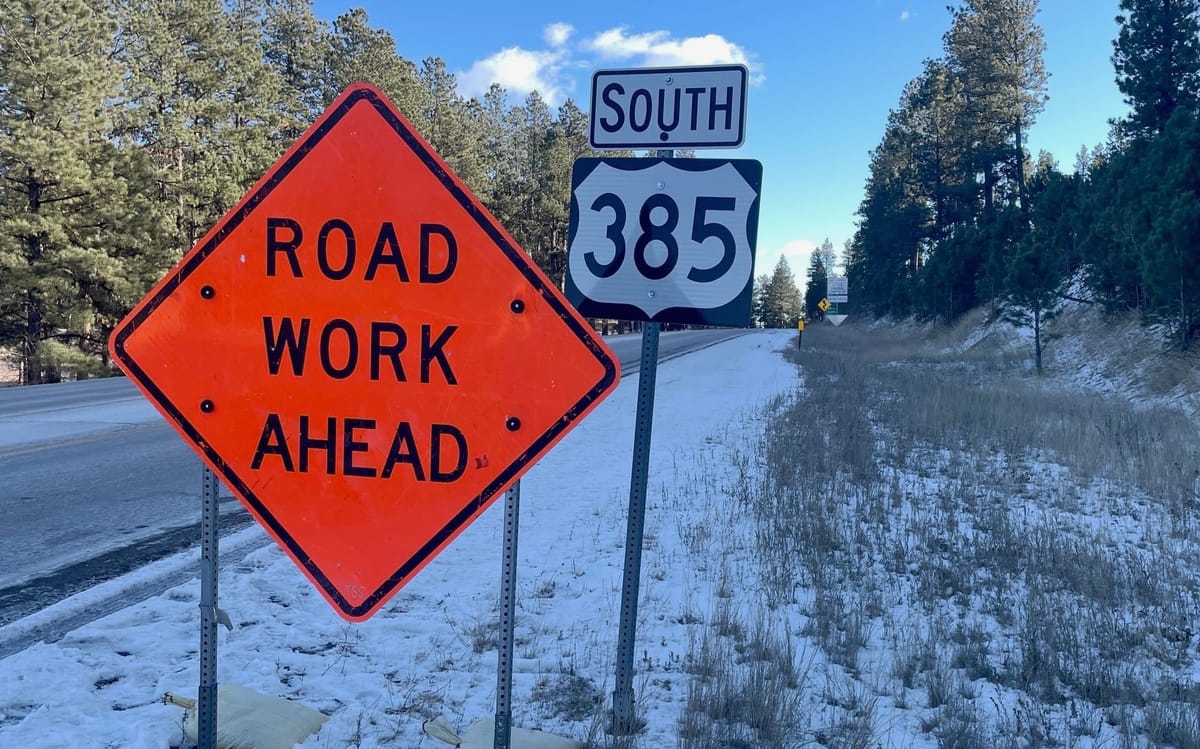
In his testimony before the House Local Government Committee on Feb. 1, Hirschfeld said local governments that try to ban short-term rentals are “threatening the economic heartbeat of South Dakotans.”
“I come bearing the hopes, dreams and struggles of South Dakotans who depend on your understanding,” he said. “Contrary to misconceptions, the faces behind the vacation rental industry are not distant investors. They are the heartbeat of South Dakota.”
Hirschfeld also pointed out that short-term rentals are part of a state tourism economy that attracted nearly 15 million visitors to the state last year and generated nearly $5 billion in overall revenues while supporting 58,000 total jobs.
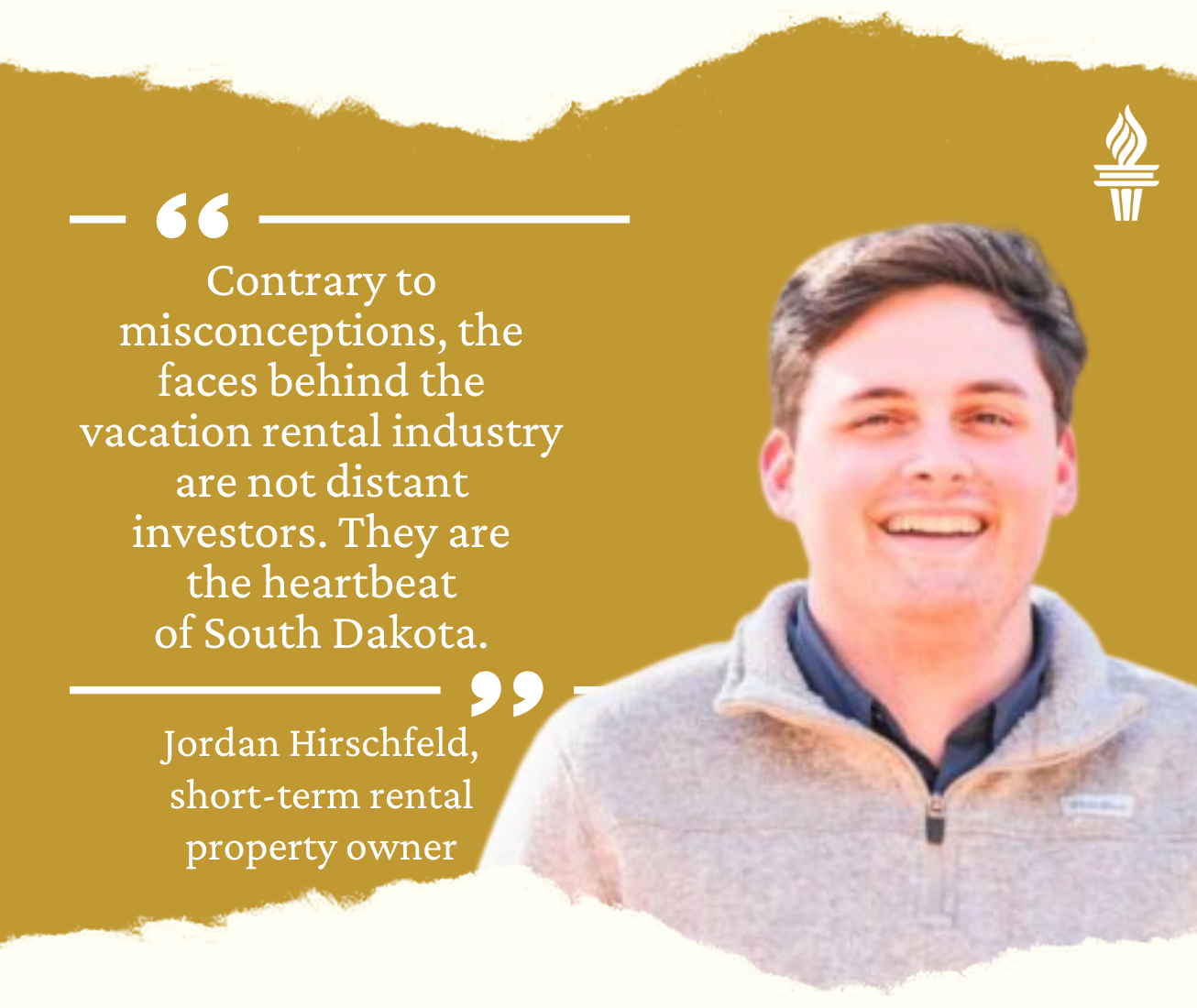
“Without our presence, the spending wouldn’t be as robust and the influx of visitors wouldn’t be as vibrant,” Hirschfeld said.
Other supporters of the measure said they understood that short-term rental owners sometimes faced criticism by local officials and neighbors. But they said property owners and managers are “self-policing” in that problems or complaints are often posted online, so it is in their best interest to offer clean, well-managed properties to guests.
Some residents, city leaders support regulation
During debate on House Bill 1149, homeowner Richard Tieszen of Pierre testified against the measure, arguing that local zoning laws exist to manage growth and should not be superseded by a state law prohibiting a ban on short-term rentals in some areas.
Tieszen said he built his dream home along the Missouri River and would be shocked if neighboring properties were suddenly transformed into nightly rentals.
"Put yourself in my position," Tieszen told lawmakers. "You wake up tomorrow and you find out the home you and your family have invested in with everything you have is going to be next door to a property that is going to be a Vrbo, which happens frequently."
Tieszen said inappropriately located short-term rentals can negatively affect property values of other homes in a neighborhood. "If you wake up tomorrow, and you have a Vrbo next to your home, I guarantee it wasn’t worth what it was the day before," he said.
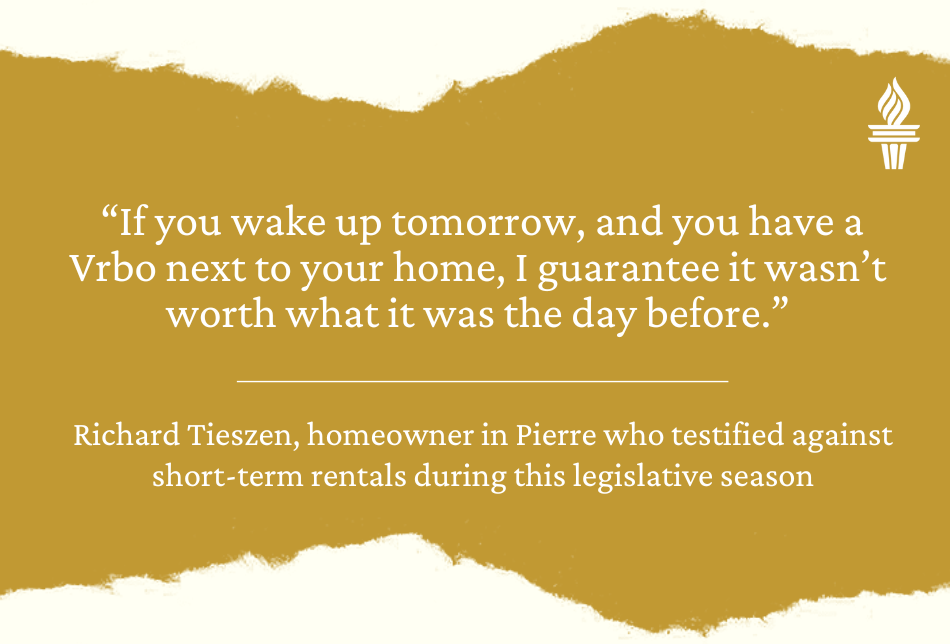
Representatives of local governments, meanwhile, told lawmakers they did not want to lose the right to regulate short-term rentals for the benefit of their communities as a whole.
David Reiss, who represents the South Dakota Municipal League, told House lawmakers that House Bill 1149 would tie the hands of local government officials who have a duty to manage growth in their communities, including where short-term rentals should be allowed.
"Municipalities should be afforded the opportunity to determine which areas of a community are appropriate and appropriately situated to accommodate short-term rental leasing as a business practice," Reiss testified. "This bill on a parcel-by-parcel basis would likely prohibit cities from identifying undesirable zones, such as commercial or historic zones within a community, where short-term rental leasing might not fit the land use goals of a community."
As lawmakers discussed the topic, some said the short-term rental issue is too important to create laws in a hasty manner and argued that more time and discussion is needed before sensible statewide regulations could be developed into law.
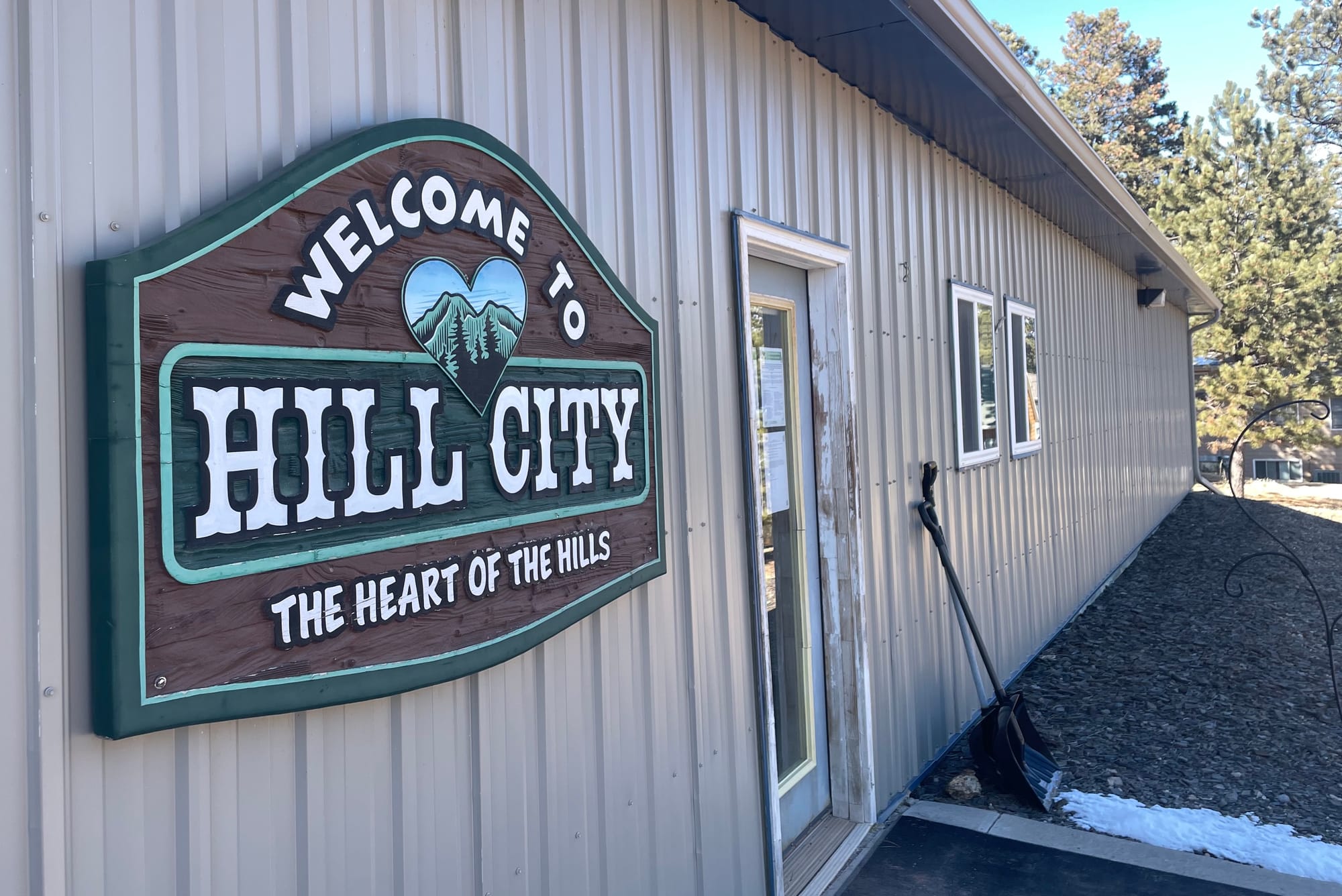
Hill City is a case study in housing challenges
In Hill City, town leaders started to grow concerned a few years ago about a long-range housing shortage.
The central Black Hills city of 900 in Pennington County saw more housing but was still unable to meet the need. The region is experiencing rapid growth among people relocating to South Dakota, retirees seeking the good life and young families arriving for jobs. In 2022, the city had 481 housing units, 46 of which were short-term rentals, Schade said.
In the off-season winter months, many short-term rentals remain unoccupied, further denying the opportunity of residents or potential residents to rent or buy a property, she said.
“Initially, it was the lack of housing stock that got us looking at this question. And then we heard all the other concerns that were out there,” Schade said.
Those other concerns included that the increasing sale prices of homes intended for use as short-term rentals was dramatically driving up the cost of all residential housing in the city, she said.
According to Realtor.com, the median list price for homes in Hill City rose from $335,000 in January 2022 to $470,000 in January 2024. A new 2-bedroom, 1-bath home of 830 square feet of space on Quinn Avenue was listed in early March at $290,000 with an estimated monthly mortgage of $2,130 a month after a $58,000 down payment in a city with a 2020 median household income of $76,500.
Schade said South Dakota tourism towns should look to Colorado as an example of how short-term rentals can negatively affect home prices, including in the mountain towns of Estes Park and Steamboat Springs, where even surgeons at the local hospital cannot afford to buy a home, according to NBC News.
“We know Hill City is growing. We know we’re a tourist destination. We don’t want to experience what Estes Park, Colorado, is going through where the people who grew up here can’t afford to live here any more,” Schade said.
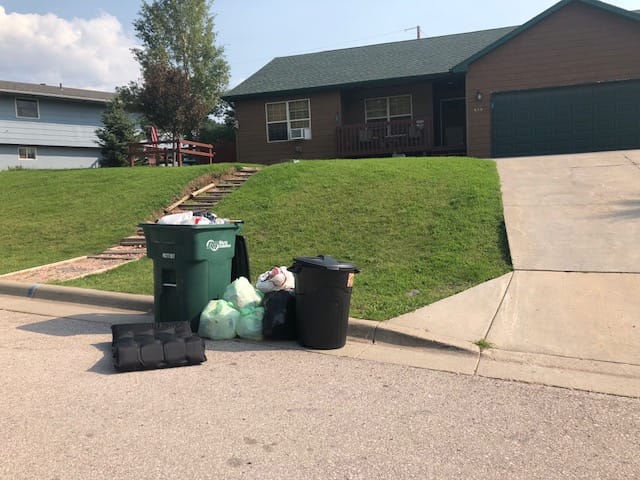
Neighbor complaints common in Hill City
Beyond that, Schade said, neighbors of short-term rentals reported troubling incidents including loud parties, pet problems, excessive trash, parking spots taken up by visitor vehicles or large trailers, and trespassing violations including some where visitors would enter homes other than those they were renting.
A community survey a couple years ago showed that about two-thirds of respondents had concerns about short-term rentals and wanted them to be regulated, she said. Some complaints about short-term rental guests are made to the city, but most are handled by the Pennington County Sheriff's Office, Schade said.
“The attitude of some visitors is, ‘I'm on vacation here and everything is open for me to experience,’” she said. “But a young family, for example, they know their neighbors, and suddenly the home next door becomes an Airbnb, and you have a continual turnover of people in your neighborhood.”
Planning and zoning officials studied the short-term rental market for a year before offering an ordinance that was approved by the city council, limiting the number of rental homes to 8% of properties on any residential street.
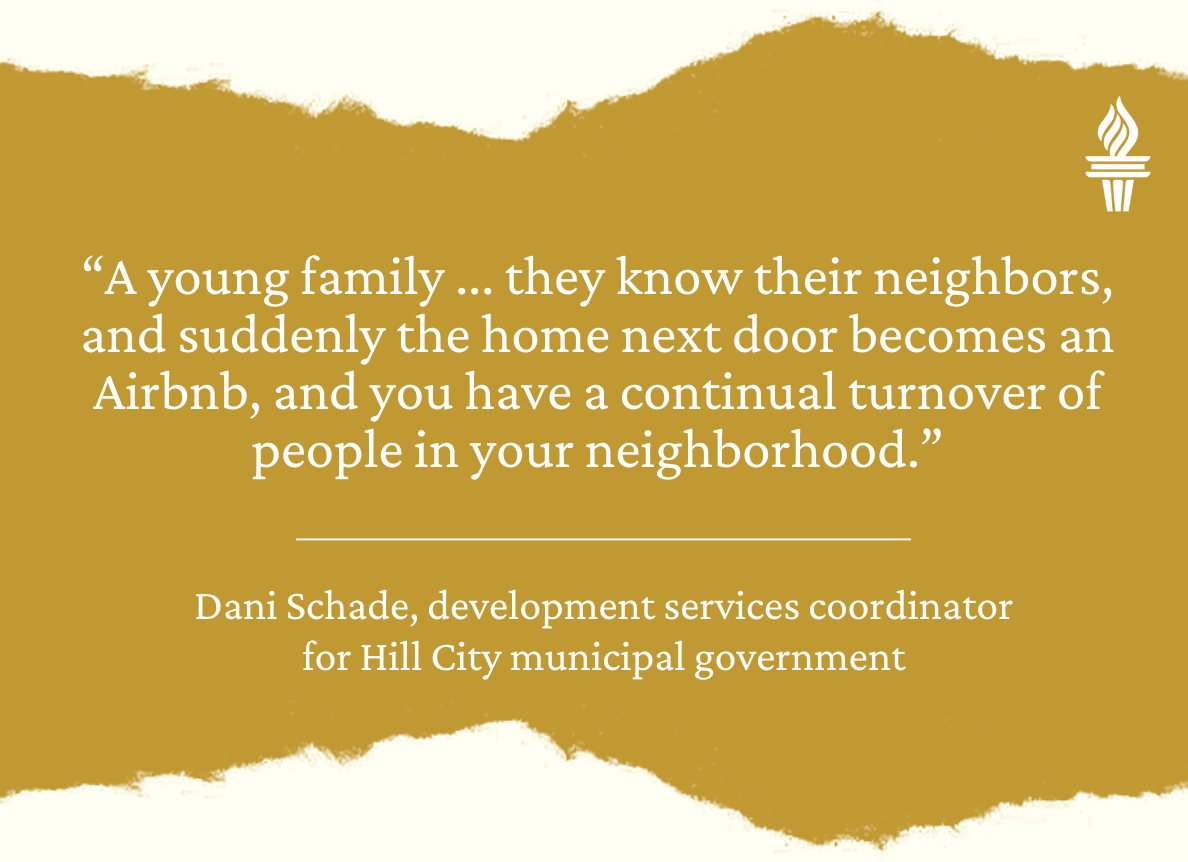
However, some city residents thought the ordinance did not go far enough in restricting short-term rentals, so a citizen ballot initiative was launched to ban new short-term rentals entirely in areas zoned as residential within Hill City limits.
The measure passed in June 2022, so no more short-term rental homes are allowed in residential areas except for those already operating, those where the owner occupies part of the home or for bed-and-breakfast operations. Rental properties with leases for more than 28 days are not subject to the ordinance, and the city abides by a state law that allows for any property to be used as a short-term rental during the annual Sturgis Motorcycle Rally, Schade said.
Existing short-term rentals in residential areas will be banned from that use if the property is sold or changes ownership, she said.
“We still allow them, we just don’t allow them anywhere,” Schade said. "We wanted to put some brakes on this now so we can avoid further problems down the road."

